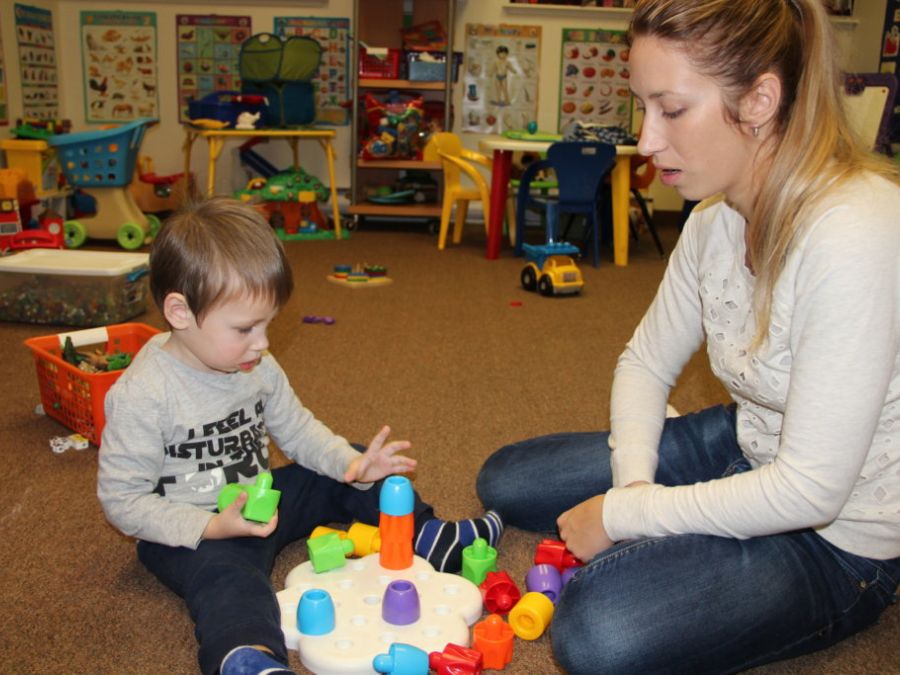Motherhood and Autism: 15 Things Every Mother of an Autistic Child Needs to Know

Motherhood and autism is a unique and transformative journey that requires patience, understanding, and a deep well of love. For every mother of an autistic child, the path is filled with challenges, discoveries, and moments of profound joy. Navigating this experience successfully involves gaining knowledge, seeking support, and embracing both the struggles and triumphs. This comprehensive guide covers 15 essential things every mother of an autistic child needs to know — from early diagnosis and communication to self-care and advocacy — all grounded in scientific research and real-life experiences.
1. Understanding Autism: The Foundation of Motherhood

Autism Spectrum Disorder (ASD) is a complex neurodevelopmental condition characterized by differences in communication, social interaction, and behavior. However, autism is not a disease to be “cured,” but a lifelong way of being with unique strengths and challenges. Every mother of an autistic child benefits from understanding the spectrum’s broad range, which includes children who are nonverbal to those with exceptional talents.
Scientific literature emphasizes the heterogeneity of autism. According to the CDC (Centers for Disease Control and Prevention), about 1 in 36 children in the U.S. is diagnosed with ASD, highlighting its growing recognition. Understanding the neurological basis of autism and recognizing sensory sensitivities or communication styles helps mothers respond with empathy and tailored support.
2. Early Diagnosis is a Game-Changer

Studies consistently show that early diagnosis of autism, preferably before age 3, significantly improves outcomes. Early intervention therapies, such as speech and occupational therapy, help develop communication and social skills critical for lifelong independence.
Mothers often notice early signs such as delayed speech, lack of eye contact, or repetitive behaviors. Trusting maternal intuition and consulting healthcare professionals promptly can open doors to specialized support sooner.
A 2022 meta-analysis in the Journal of Autism and Developmental Disorders confirmed that children diagnosed and treated early show better social adaptation and cognitive development, reinforcing the urgency of timely evaluation.
3. There is No Cure, But Quality of Life is Paramount

The quest for a “cure” can overwhelm mothers, but it’s crucial to shift focus toward enhancing quality of life. Autism is a neurodiverse condition, meaning the brain functions differently rather than defectively.
By promoting skills, independence, and happiness, mothers help their children thrive on their own terms. Evidence-based therapies combined with family support foster emotional well-being and adaptive functioning.
Acceptance and understanding, both self-directed and from society, are vital. Studies show that autistic individuals with strong support networks report higher life satisfaction.
4. Every Child is Unique — Embrace Individuality

No two autistic children are alike. While some might excel in visual thinking or music, others might have challenges with verbal communication or sensory overload. Understanding and valuing your child’s unique profile leads to personalized support strategies.
Research in neurodiversity highlights the strengths autistic individuals bring to society, from exceptional attention to detail to creativity and honesty.
Mothers should celebrate small achievements and honor differences without comparing to neurotypical milestones.
5. Routine and Predictability Provide Security

Many autistic children find comfort in predictable routines that reduce anxiety and sensory overload. Establishing daily schedules and visual timetables helps children understand expectations and transitions, which can otherwise be stressful.
Studies show that structured environments increase engagement and reduce behavioral challenges. Mothers can use simple tools like picture schedules or timers to support routine adherence.
Flexibility remains important, but within a framework that respects the child’s need for consistency.
6. Communication Can Take Many Forms

Not all autistic children communicate verbally. Alternative and augmentative communication (AAC) methods — including sign language, picture exchange systems (PECS), or speech-generating devices — empower children to express their needs and feelings.
Mothers should collaborate with speech therapists to identify the best communication tools and encourage their use consistently at home.
Research confirms AAC not only improves communication but also reduces frustration and challenging behaviors.
7. Self-Care for Mothers is Essential

Caring for a child with autism can be physically and emotionally demanding. Mothers who prioritize their own well-being are better equipped to support their children effectively.
Self-care can include therapy, hobbies, physical exercise, mindfulness, or simply rest. Peer support groups and counseling provide emotional outlets and reduce feelings of isolation.
Research indicates that parental stress can impact child outcomes, so investing in mental health benefits the whole family.
8. Build a Strong Support Network

No mother of an autistic child should walk this path alone. Support networks comprising family, friends, therapists, and other parents provide invaluable emotional and practical assistance.
Online communities and local support groups foster connection, resource sharing, and encouragement.
Research shows that social support mitigates caregiver stress and promotes resilience.
9. Rely on Science-Based Information

In the age of social media, misinformation about autism is widespread. Mothers need to seek reliable sources such as peer-reviewed journals, reputable organizations like Autism Speaks or the Autism Society, and guidance from qualified professionals.
Critical thinking and skepticism toward miracle cures or unproven treatments safeguard families from harm.
10. Inclusive Education Benefits Everyone

Inclusive education environments promote acceptance, diversity, and academic growth. Children with autism gain social skills by interacting with neurotypical peers, and classrooms enriched by diversity foster empathy in all students.
Mothers can advocate for Individualized Education Plans (IEPs) or 504 plans to ensure accommodations that meet their child’s needs.
Educational research highlights the long-term benefits of inclusion for academic success and social development.
11. Therapies Should Respect the Child’s Pace

Occupational therapy, speech therapy, behavioral interventions, and social skills training are pillars of autism support. However, each child adapts differently.
Mothers should avoid overwhelming their children and prioritize therapies that align with the child’s interests and comfort.
Collaborative goal-setting between families and therapists enhances motivation and progress.
12. Celebrate Every Small Victory

Progress in autism is often gradual. Celebrating milestones—whether learning a new word, managing a sensory overload, or making a new friend—fuels motivation and positive feelings.
Mothers who document achievements can share successes with family, therapists, and support groups.
Positive reinforcement benefits both child and mother, fostering a hopeful outlook.
13. Social Inclusion is Vital

Encouraging friendships and social interactions builds emotional resilience and combats isolation.
Social skills groups, community activities, and playdates provide opportunities to practice communication and cooperation.
Research shows that inclusive socialization reduces anxiety and depression in autistic individuals.
Leonardo.AI prompt: Autistic child happily playing with other children in a community park.
14. Prepare for Challenges Without Losing Hope

Motherhood and autism come with obstacles: sensory meltdowns, communication struggles, or societal misunderstandings.
Mothers who approach challenges with patience, flexibility, and problem-solving often find creative ways to support their children.
Maintaining hope and focusing on strengths empowers both mother and child to overcome setbacks.
15. You Are Part of a Larger Community

Thousands of mothers share the journey of raising autistic children. Connecting with this community fosters belonging and access to collective wisdom.
Sharing stories, resources, and advocacy efforts amplifies voices and drives positive change.
Motherhood and autism, while challenging, is enriched by solidarity and shared love.
Final Considerations on Motherhood and Autism
Motherhood and autism is a singular, often complex experience that reshapes identity and family dynamics. Armed with the 15 key insights presented here, mothers can feel more prepared, empowered, and supported.
Your love, patience, and dedication are invaluable. Embrace the journey with compassion—for your child and yourself—and prioritize well-being, scientific knowledge, and connection.
Every autistic child is unique, and so is every mother’s path. Celebrate your child’s individuality, seek support when needed, and never underestimate your strength.
You are not alone. Together with knowledge, empathy, and community, you can build a life filled with hope, growth, and joy.







